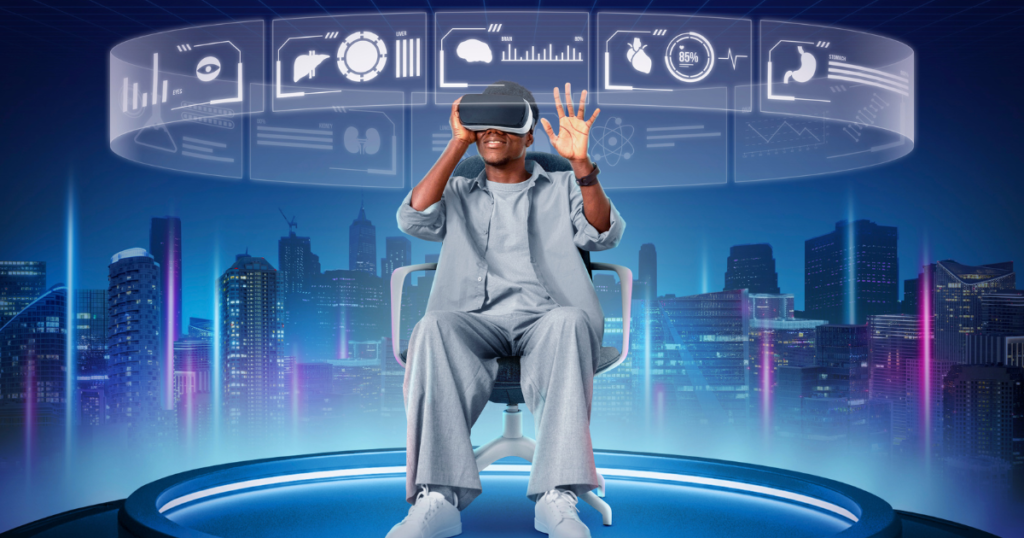
Technology has been an ever-evolving force that has significantly shaped human civilization. From the ancient times when early humans discovered fire to the modern era of artificial intelligence and space exploration, the journey of technology has been both remarkable and transformative. One particular phase in this continuum often referred to as the “Dark Age of Technology” serves as a stark contrast to the advancements witnessed in the current era.
The Dark Age of Technology
The Dark Age of Technology is a term often used to describe a period where humanity, despite its advanced knowledge and capabilities, faced a significant collapse or loss of technological advancements. While this term is often associated with a fictional setting in the Warhammer 40,000 universe, parallels can be drawn to various historical epochs where societies faced the loss or suppression of technological knowledge.
During these dark ages, knowledge that had once been developed and utilized was lost due to various factors such as war, societal collapse, or simply a lack of infrastructure to sustain and pass down this knowledge to future generations. The demise of great empires like the Roman Empire or the fall of the Mayan civilization led to a decline in technological progress, resulting in a significant setback for human advancement.
Current Year Technology
Contrasting this era with the present, the modern age is characterized by a breathtaking pace of technological advancement. The past few decades have seen an exponential growth in technological innovation, fundamentally altering the way we live, work, and communicate.
Information Technology and Connectivity
One of the most prominent developments is the internet, which has revolutionized global connectivity. This interconnected web of information has transcended borders, enabling instant communication and access to an unprecedented amount of knowledge. Social media platforms, cloud computing, and digital communication tools have not only changed how we interact but also redefined industries, business models, and even activism.
Artificial Intelligence and Automation
The rise of artificial intelligence (AI) has significantly impacted various sectors. AI and machine learning algorithms have enabled automation in industries, enhancing efficiency, precision, and productivity. From autonomous vehicles to personalized recommendation systems, AI has seeped into our daily lives, transforming how we experience the world.
Sustainable Technology and Renewable Energy
Another significant shift is the focus on sustainability. In response to climate change, there’s been a surge in the development and adoption of renewable energy sources like solar and wind power. Innovations in energy storage, electric vehicles, and sustainable practices in various industries are contributing to a greener and more environmentally friendly future.
Healthcare and Biotechnology
Advancements in healthcare and biotechnology have been phenomenal. From gene editing technologies like CRISPR to the development of mRNA vaccines, these innovations have revolutionized medical treatments, paving the way for more effective disease management and even potential cures for previously incurable conditions.
Bridging Past and Present
The stark contrast between the Dark Age of Technology and the present serves as a reminder of the importance of preserving knowledge and advancing it for the betterment of humanity. The current era’s rapid advancements not only showcase the potential of human innovation but also carry the responsibility of ethical and responsible usage of these technologies.
The progression of technology is a testament to human ingenuity and our ability to learn, adapt, and innovate. Understanding the mistakes and the causes that led to the decline in the past can help us safeguard against such regressions in the future.
As we embrace the current era of technology, it is imperative to strive for a balance between progress and preservation. By valuing the lessons of the past and steering the trajectory of technological advancement responsibly, we can build a future that maximizes the benefits of innovation while ensuring the sustainability and prosperity of generations to come.
Dark Age of Technology: Understanding the Contrast
In historical instances like the collapse of the Roman Empire, the loss of vast knowledge in architecture, engineering, medicine, and governance led to a prolonged period where society regressed technologically. Written records were lost, infrastructure crumbled, and the transmission of knowledge was severely disrupted, causing a substantial setback in progress.
This era was characterized by a lack of innovation, scarcity of resources, digital marketing and a general decline in the quality of life for many. The absence of technological advancements limited societal growth and the ability to address various challenges that confronted the people of that time.
Contrast with Modern Innovations
In stark contrast, the present age is marked by an accelerated rate of technological progress across multiple domains:
Communication and Information Exchange
The ease of communication and access to information today is unparalleled. With the internet, smartphones, and high-speed connectivity, the world is more interconnected than ever. Information is readily accessible, enabling swift sharing of knowledge and ideas.
Global Connectivity and Commerce
The interconnectedness of economies through global trade and digital platforms has not only bolstered economies but also brought different cultures closer together. E-commerce and digital platforms have transformed the way goods and services are exchanged.
Space Exploration and Scientific Advancements
Advancements in space exploration, a field that was virtually nonexistent during the Dark Age of Technology, have led to remarkable discoveries. The exploration of Mars, the landing of rovers on celestial bodies, and the ambitious plans for space tourism signify the extraordinary progress in this domain.
Sustainable and Green Technology
The current focus on sustainable development and renewable energy sources is a testament to the collective acknowledgment of the need for environmental preservation. Innovations in solar, wind, and hydroelectric energy, along with eco-friendly practices in various industries, show a commitment to a greener future.
Healthcare and Biotechnology
The strides made in healthcare and biotechnology have significantly enhanced human life expectancy and quality of life. From innovative treatments for diseases to personalized medicine, these advancements are reshaping the landscape of healthcare.
Lessons and Responsibilities
Reflecting on the contrast between these periods offers valuable lessons. It highlights the fragility of knowledge and the importance of its preservation and transmission. It also emphasizes the need for responsible innovation and the ethical application of technology for the benefit of all.
The responsibility lies in ensuring that the current wave of technological progress is inclusive, sustainable, and addresses societal challenges. It’s vital to address issues such as digital divides, ethical concerns surrounding AI and biotechnology, and the impact of technological advancements on employment and human relationships.
Technological Evolution and Society
The evolution of technology isn’t just about gadgets and advancements; it deeply impacts societal structures and individual lives. In the Dark Age of Technology, the loss of knowledge led to a stagnation in societal growth. In contrast, today’s technological progress significantly shapes our societal fabric, leading to transformations in various spheres:
Education and Knowledge Sharing
The advent of digital platforms and e-learning has democratized education, making knowledge accessible to individuals worldwide. Massive Open Online Courses (MOOCs), online resources, and educational apps have revolutionized learning.
Digital Divide and Inclusivity
While technology has brought unprecedented access to information, it’s also important to address the digital divide. The discrepancy in access to technology and the internet among different socio-economic groups or regions needs to be bridged for a more inclusive future.
Cybersecurity and Ethical Concerns
The proliferation of technology raises concerns regarding cybersecurity and privacy. Protecting personal data and ensuring digital security have become paramount in an age where information is more accessible than ever.
Current Innovations Shaping the Future
Quantum Computing
The emergence of quantum computing holds the promise of solving complex problems that are currently infeasible for classical computers. This technology could revolutionize various industries, from cryptography to drug discovery.
5G Technology
The deployment of 5G networks offers unparalleled speed and connectivity, enabling innovations in various sectors, including IoT (Internet of Things), smart cities, and autonomous vehicles.
Biotechnological Advances
The development of lab-grown organs, personalized medicine, and gene-editing technologies like CRISPR are pushing the boundaries of what’s medically possible, potentially revolutionizing healthcare.
Renewable Energy Innovations
The continuous innovation in renewable energy, such as advancements in energy storage solutions and more efficient solar panels, is pivotal in the global transition towards sustainable energy sources.
AI Ethics and Governance
The conversation around ethical AI and establishing governance frameworks to ensure responsible AI usage is gaining momentum. It’s crucial to mitigate biases and ensure transparency in AI decision-making processes.
Striking a Balance for a Sustainable Future
As we stand at the precipice of the next technological leap, it’s crucial to consider the following:
Ethical Considerations: Ensuring that technological advancements are ethically sound and serve humanity’s best interests.
Sustainability: Developing technology that aligns with sustainable practices, minimizes environmental impact, and promotes responsible resource usage.
Inclusivity: Bridging the digital divide and ensuring that technological benefits are accessible to all.
Conclusion
The journey from the Dark Age of Technology to the current era is a testament to human resilience and innovation. However, it also serves as a cautionary tale, reminding us of the delicate balance required in steering the course of technological progress.
By learning from history, addressing ethical concerns, fostering inclusivity, and prioritizing sustainability, we can pave the way for a future where technology serves as a tool for positive societal transformation, a sustainable environment, and an inclusive global community. The responsibility lies in our hands to ensure that the current technological revolution shapes a future that benefits all and sustains our world for generations to come.






Leave a Reply